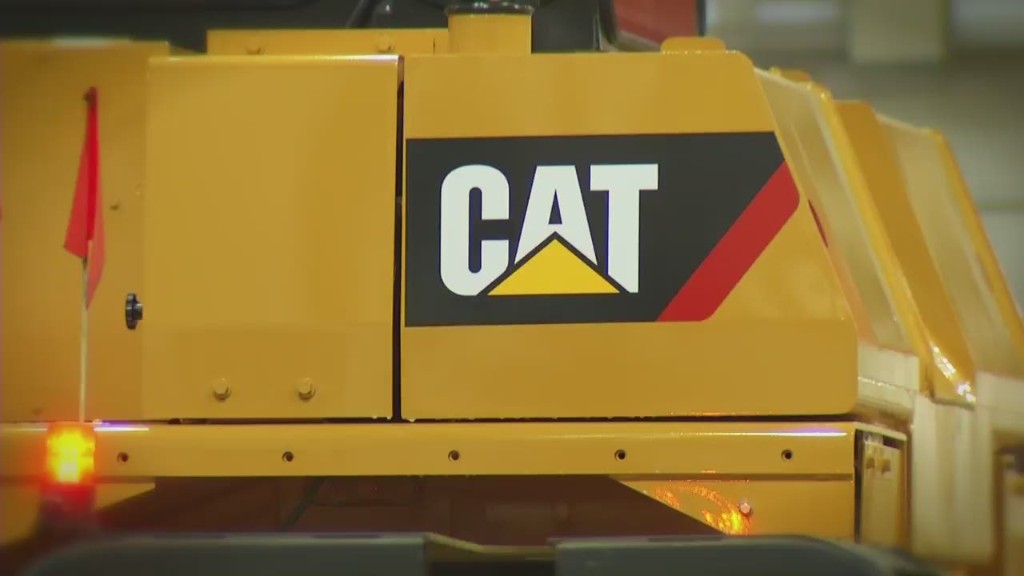
Like shoppers on Black Friday, Wall Street titans have a keen smell for deep discounts. At the moment, they're sniffing in oil fields.
Many parts of the U.S. stock market look expensive these days, but prices have fallen dramatically in the energy sector from over $100 a barrel in the summer to under $50 now.
Private equity firms are raising vast sums of money to buy oil assets on the cheap.
Blackstone Group (BX) alone launched a $4.5 billion energy fund on Monday. That gives the private equity giant a formidable war chest to deploy on distressed assets like beaten-down oil companies and drilling projects thrown in disarray by the oil meltdown.
Given its history in the industry, Blackstone said it's well positioned to "take full advantage of the significant recent cyclical downturn in oil and gas prices."
Private equity pounces: They aren't alone. Warburg Pincus, the New York firm where former Treasury secretary Tim Geithner works, launched a $4 billion energy fund in October.
These sophisticated investors realize traditional sources of capital like banks and the junk bond market are increasingly shutting oil companies out.
Related: Cheap oil killed this CEO's $14M job
"Private equity companies are uniquely positioned to capitalize on this. Not only do they have the deep pockets, but they can also take a long-term approach," said Tamar Essner, an energy analyst at Nasdaq Advisory Services.
Certain projects in the U.S. shale and Canadian oil sands no longer make economic sense with oil below $50 a barrel. Sophisticated investors are sensing desperation.

Some companies in the oil industry are in a much weaker financial position, forcing them to slash drilling plans, lay off workers and scrap dividends. Other firms are unfairly seeing their stock prices decline because they are being lumped in with the weakest companies. Private equity may be their only lifeline.
Of course, private equity firms aren't strangers to the oil industry, which until recently had been soaring thanks to the shale boom. Since 2013, private equity has raised a whopping $101 billion in energy-focused funds, according to data provider Preqin.
In fact, many like KKR (KKR) and Carlyle Group (CG) have revealed steep drops in profits due partly to falling stock prices in the oil industry. They have been burned on the downside too.
Related: Workers at largest US oil refinery join strike
Buy signal for retail investors? While mom-and-pop investors don't have the luxury of raising billions of dollars to buy distressed assets, they do have the option to buy energy stocks, but the jury is still out on whether these stocks have bottomed out.
On the one hand, recent filings reveal Warren Buffett dumped his holdings of ExxonMobil (XOM) and ConocoPhillips (COP) late last year. That's not exactly a vote of confidence in Big Oil.
Then again, the S&P 500 energy sector has rallied more than 8% since mid-January as oil prices have rebounded back above $50 a barrel (at least until Monday when they dropped back below that level).
Related: Warren Buffett ditched Big Oil. Dumb move?
BlackRock (BLK), the world's largest asset manager, recently made a bullish call on "super major" oil companies due to their strong balance sheets, high dividends and integrated business models.
In any case, some everyday American may be gaining exposure to energy whether they want to or not.
Blackstone's $4.5 billion fund didn't just raise cash from the uber rich. Its investors include U.S. state pension funds, corporate pension funds, sovereign wealth funds, insurance companies, endowments and foundations.


